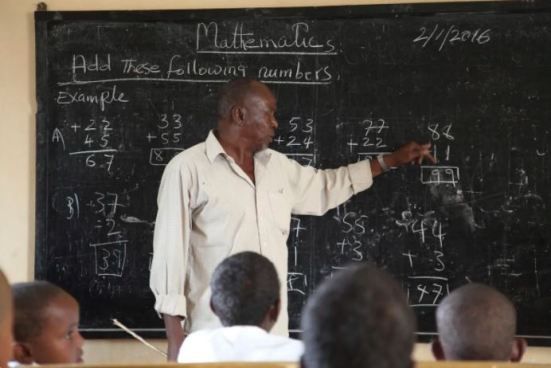FOR years, thousands of Nigerian students have been denied admission into tertiary institutions for performing poorly in one subject: Mathematics. The disappointment experienced mostly by Arts students has been frustrating.
Students, who might excel in English, Literature, Government, History, and related subjects in their areas of study, but fail in Mathematics, are disqualified from proceeding to the university, polytechnics or colleges of education. Sadly, a majority of them have gone to great extents, including frequenting “miracle centres,” just to pass Math.
It is estimated that over two million candidates sit for the Unified Tertiary Matriculation Examination (UTME) annually, but only about 700,000 secure admissions, a paltry 35 per cent. With this narrow window of opportunity, it was only a matter of time before the nation’s admission policies posed questions.
And so, when the Federal Government recently removed Mathematics as a compulsory condition of admission for candidates seeking to gain entry into Arts and Humanities programmes, many heaved a sigh of relief.
The Federal Government’s action was a part of a general policy of democratizing university education access and to reverse years of restrictive admission requirements that excluded otherwise qualified candidates, the Minister of Education, Dr. Tunji Alausa, said.
Under the new scheme, Mathematics is still a prerequisite for Science, Technology, and Social Science students, but not for Arts students. In what appeared to be more clarifications issued by the Director of Press and Public Relations in the Federal Ministry of Education, Folasade Boriowo, English and Mathematics are still core subjects at the O-Level. But the reform provides more flexibility in their use to gain entry into tertiary institutions.
The development, while widely celebrated, has not been without controversy. Education experts, policymakers, and other stakeholders have expressed mixed reactions. Some hailed the move as progressive and humane; others viewed it as a dangerous lowering of academic standards.
Critics argue that Mathematics is more than a school subject, arguing that it is a vital tool for developing logic, reasoning, and problem-solving skills, all of which are indispensable in today’s fast-changing world.
There are good reasons for their fears. In most advanced systems of education, Mathematics remains a core part of secondary education. In over half of the countries surveyed by a Nuffield Foundation study, Mathematics is taught to all students up to the end of upper-secondary education, regardless of the subject they study. The reasoning is simple: numeracy is every bit as much a skill for life as literacy. Whether a lawyer negotiating legal costs, a journalist interpreting statistics, or a theatre producer operating within budgets, the basic ideas of Mathematics must be engaged.
There is, however, another side to this argument. Our admissions system has, for too long, seen Mathematics as a rigid barrier and not as a bridge. Thousands of brilliant Arts students have been shut out of university because they have failed one subject. In a country confronted by youth unemployment and talent wastage, this policy has more likely harmed than helped. It is, though, to be appreciated that the Federal Government has opted to slightly open the door wider.
Access, however, should never be at the expense of quality. The answer is not to exclude Mathematics entirely for Arts students but to redesign it to suit their cognitive and career needs. Rather than algebra and trigonometry, which are less applicable to Theatre Arts or Mass Communication, curriculum planners could provide courses such as Quantitative Reasoning for the Humanities or Applied Numeracy in Communication and Law. These would give Arts students the basic numeracy skills necessary for budgeting, data analysis, and sound thinking, without needing them to run the gauntlet of unnecessary formulas.
Removing Mathematics as a compulsory subject for Arts students is a bold move that showcases the ambition of the government to modernise education policy. But bold must be matched with restraint. Policymakers need to make sure the new system still produces graduates who are critical thinkers, logical reasoners, and players on the global front.


